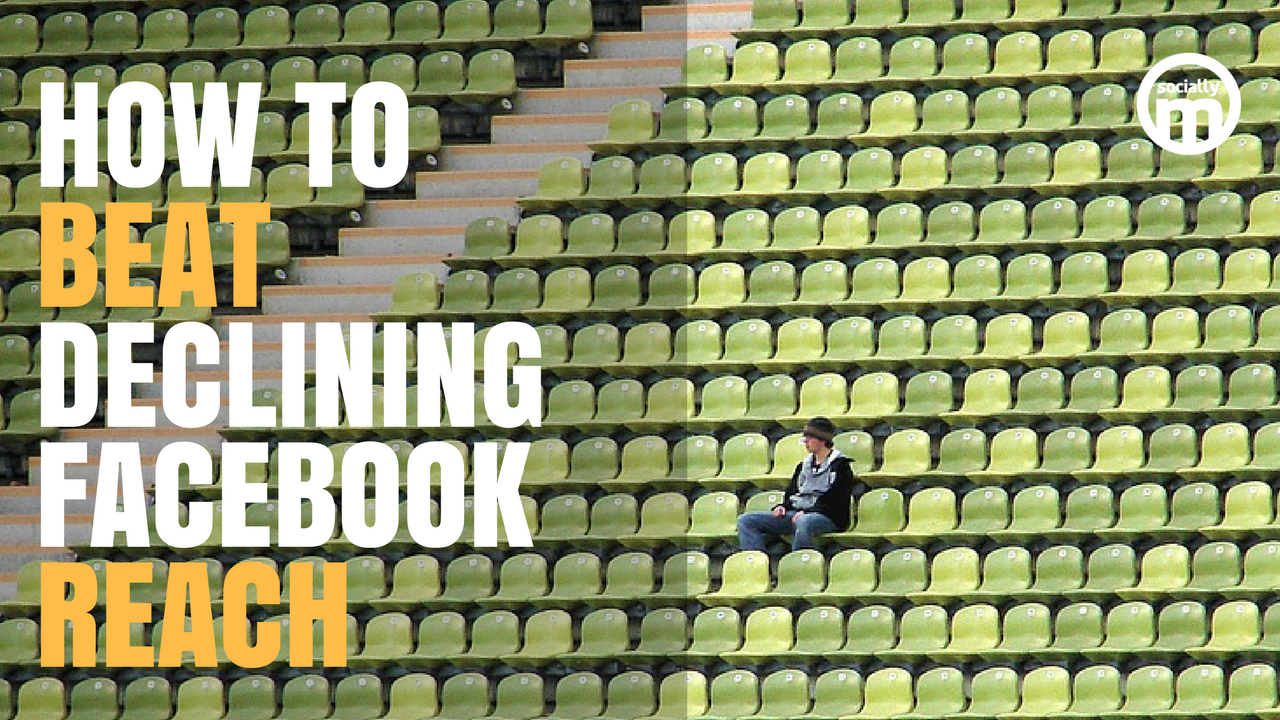By now, the vast majority of people I speak to have seen a massive drop in engagement on their Facebook pages. And I do mean massive. When Facebook first debuted pages, it was a golden age for gaining fans, as you could guarantee that your content would show up in the newsfeed of every single person who had clicked that 'Like' button on your page. But with this amazing reach, unsurprisingly came a lot more pages, jamming content of all kinds into the newsfeed and creating a massive free-for-all land grab for fans. In late 2012 Facebook stepped in, throttling the reach of all pages so that only 16% of page fans would actually see the content page owners posted. Facebook openly admitted; "We expect organic distribution of an individual page's posts to decline over time as we work to make sure people have a meaningful experience on the site."
This created much debate amongst social media professionals as to the longevity of Facebook for marketing, as the platform moved towards a pay-per-view model, floated on the stock exchange, offered paid advertising to pages and developed the 'Edgerank' algorithm. All of which seemed designed to throttle traffic, engagement, visibility and growth of Facebook pages. By late 2013 many people I worked with were reporting poor responses to any of their Facebook efforts. In-depth analysis by some of the larger social monitoring organisations revealed that organic reach dropped as low as 6% on average, but larger brands with fans numbering more than 500,000 saw a greater drop to around only 2% of their audience. Facebook's solution? Paid advertising. Their suggestion being that big brands should consider paying for Facebook reach as part of their marketing budgets. Facebook has shareholders to look after now, after all. But how does this affect the little guy, the non-profit organisation or those of us that simply don't want to pay to reach people? The vast majority of social media professionals will tell you that organic reach is a thing of the past, that paid advertising is the way forward. You've probably already seen all the sponsored posts on Facebook offering the miraculous information on 'how to beat the system', 'how to make the most of your paid advertising' or 'foolproof systems for converting your advertising into likes'. I'm going to let you into my own little secret right now. No-one really knows for sure how Facebook determines what appears in the newsfeed and I mean no-one. Speak to Facebook's own engineers and they all have a different view on how it works. So there is no mathematical equation to combat Facebook's algorithms. There simply can't be. The Edgerank algorithm that became such a dirty word to page owners has evolved into a system that now weighs over 100,000 separate factors when determining what people see in the newsfeed and I'm pretty sure that Facebook isn't going to be telling anyone what those 100,000 factors are. The sure-fire results systems are a myth and there has even been recent research that calls into doubt whether paid advertising or paid reach actually reaches the number of fans that it says it does. So instead of speculating, abandoning all hope and paying through the nose for reach, let's think about what we do know. We already know that the Edgerank algorithm was built on 3 founding principles:
Next it's worth thinking about your own experience of Facebook and a little bit about what we know or see from using the platform regularly. What do you see happening with your own or other people's posts? Think a little about why some posts are clearly visible and somehow all your friends have seen them, whilst some disappear into obscurity with no-one seeing them. From my personal experience this works particularly well if you put yourself in Facebook's shoes, what content would you want people to see if you were Facebook? I'd be asking myself a few questions:
It comes back to the quote from Facebook right at the start of this article which included; "We work to make sure that people have a meaningful experience". Just think about that for a moment, 'a meaningful experience'. This means that you're going to need to get to know your audience a lot better if you're going to start delivering content that they find meaningful and that enriches their use of Facebook.
0 Comments
Leave a Reply. |
Archives
October 2023
|


 RSS Feed
RSS Feed
